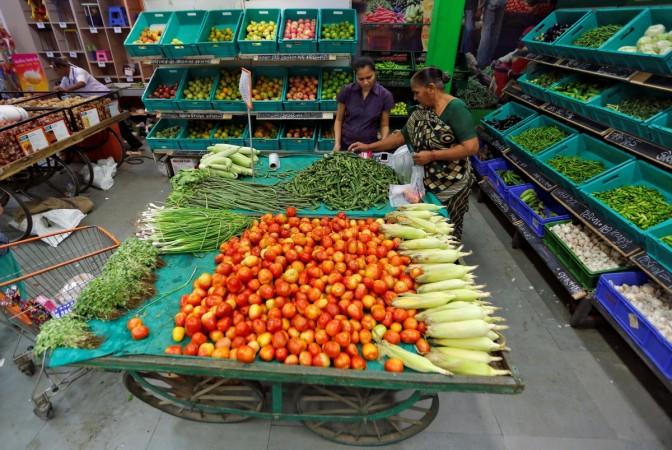
There seems to be at least one upside to the demonetisation drive initiated by Prime Minister Narendra Modi on November 8 — retail inflation is poised to fall further from the 14-month low of 4.20 percent recorded last month.
"Data since the November 8 demonetisation move shows a divergence between perishable and non-perishable food prices. Perishable prices have moderated by 3.3 percent, led by lower fruit and vegetable and egg prices, while non-perishable prices are 1.1 percent, higher, led by wheat. On aggregate, though, food prices are marginally lower (-0.8 percent)," Sonal Varma, analyst at Nomura Securities in a note on Wednesday.
"A moderation in aggregate food prices will lower inflation momentum in November. We currently expect CPI inflation to moderate to ~4.0 percent y-o-y in November from 4.2 percent in October," she added.
The gain is more due to the disruption in the supply chain for food items, given the preponderance of cash transactions in the trade.
"The immediate effects of the demonetisation-induced cash shortage have been to curtail transportation and severely limit the ability of middle-men to buy any significant stock, forcing farmers to sell perishable goods at lower prices," Varma said.
Further, the spike in retail inflation till a few months ago was due to sharply rising prices of select food items, such as pulses.
The fall in retail inflation was aided by decline in prices of food items to 3.32 percent from 3.96 percent (final) in the preceding month. The rate of price increase for pulses was also low at 4.11 percent from a high of 14.33 percent in September 2016.
If retail inflation indeed drops to four percent or below, the case for a rate cut by the Reserve Bank of India (RBI) will gain further momentum, though the November inflation data will come after the bank's MPC meeting on December 6 and 7.




!['Lip lock, pressure, pyaar': Vidya Balan- Pratik Gandhi shine in non-judgmental infidelity romcom Do Aur Do Pyaar [ Review]](https://data1.ibtimes.co.in/en/full/797104/lip-lock-pressure-pyaar-vidya-balan-pratik-gandhi-shine-non-judgmental-infidelity-romcom.jpg?w=220&h=138)






